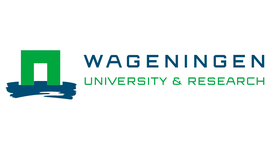Imagine a world where you sit on the couch and instead of opening an app to order take-out, you press a button, and a hamburger rolls out of the printer. Not a two-dimensional image, no, an actual product that you can eat. Or if you are still hungry for fast food, how about a robot that can make you a fresh pizza in 30 seconds? Thanks to vertical farming the ingredients are grown right at your favourite restaurant or maybe even in your own kitchen. This all sounds nice and convenient, but to what extent can these technological solutions make our food better, healthier and smarter? Find out in this new episode of Tech for Society about the future of our food.





Olivier Francescangeli is Co-Founder at VaVersa, a company that makes indoor vertical farms the size of a bookcase. Olivier studied at Wageningen University in the direction of Greenhouse Horticulture/Technology, Plant Sciences. He is also part of the LocaLeaves Foundation: the organiser of the Food YZA expo, which aims to research how citizens see the future of food and understand how they want to get their food in the future.
Lu Zhang is assistant professor on additive food assembly. Her research interests include complex food systems, 3D food printing and material science. She and her team conduct research to advance the food printing technology for the personalization of healthy and tasty foods, by developing machine-learning predictive models to describe behaviours of complex food systems during printing and designing control stratergies to adapt the printer to changes in food materials’ properties. Lu received her PhD degree at Wageningen University in 2018. She invesigated bioactive ingredients during mini-bread baking. She studied chemical engineering for her BSc and MSc degrees at Xiamen University in China.
Richard Beks is co-founder of Orbisk. Orbisk is a start-up that is on a mission to reduce foodwaste. Orbisk uses a smart camera, connected to a smart scale below the waste bin, to automatically register all food that is thrown away, down to the ingredient level. In that way it helps restaurants to reduce dozens of containers of monthly food waste.
Mona Delagrange is founder at Nomet. Nomet makes seaweed croquettes. Nomet was born in 2021 with a clear purpose: to create a better world through plant-based sea food – made with seaweed. Mona studied Nutrition at Hogent in Gent Belgium and did her masters Molecular nutrition and toxicology at Wageningen University. After she worked for 3 years at Unilever, she is currently connected to the Vrije Universiteit Brussel as part of the scientific staf.
Hille van der Kaa is


Een middelgroot restaurant gooit tot 60 kilo voedsel weg. Drie heren denken met een slimme afvalbak de oplossing te hebben gevonden voor dit probleem.

Vaversa, based in Amsterdam, The Netherlands, is a provider of growing cabinets to chefs, large caterers and hotel chains. The company believes that professional chefs, now more than ever, have a role and a responsibility in transforming and inspiring consumers in the ways we source, consume and cook food








